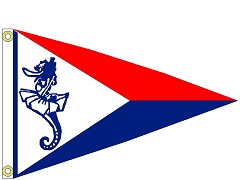Metals
- Details
- Category: Hull and Deck
- Published: Monday, 14 July 2014 16:20
- Written by Super User
- Hits: 19132
Fixing a Marinette Hull? Then ...
Check the hull first before you decide to weld.
|
|||||||||||
Alloy : Plate and Sheet Aluminum 5086-H34 or 5086-H116 (GATW or TIG welding). Don't switch to a "better" alloy and for heaven's sake don't use non-marine aluminum. A specific welding alloy is recommended for H5086-H34 or H5086-H116, use it. Aluminum Roamers, I'm told are usually the same metal. (Yes, ABS American Bureau of Shipping rules say mixing marine aluminum allows is OK with the right filler metal (weld wire)).
|
|||||||||||
Thickness :
|
|||||||||||
| Repair Welding is GATW with a ceramic backing strip. Hire only expert welders for repair. Expect an aluminum welder to make at least $35-$100 hour depending on location and demand. Fixing a hull with a few plates should not be an exorbitant amount. A prepped boat can be welded quickly. | |||||||||||
Hire an expert welding shop with expert aluminum welders.
|
|||||||||||
| Clean the areas which will be welded. Get all the tar out and thoroughly clean it as a welder would. Be ready to weld. Do not use grinders on aluminum, they damage the surface with heat. Sandblasting is not generally required to weld aluminum. Do not use steel or copper brushes to clean aluminum, stainless brushes are ok to break the oxide layer. (Aluminum melts at 650 C, but the oxide layer melts at 2000C +. A clean weld area is essential, and that means that even finger print grease is not permitted. | |||||||||||
Do not braze marine aluminum that will be immersed, it's too large a galvanic (voltage) difference. Aluminum brazing (like Duraweld) is an above the waterline patch. It's better to use epoxy than this stuff. In fact I'd just avoid brazing marine aluminum, unless you boat in distilled water. The brazing metals are high in zinc and will corrode. (ABS does not state that brazing is permissible for hull construction.)
|
|||||||||||
Check the welds.
|
|||||||||||
| After it's done right; clean it, rough it, and paint it. | |||||||||||
| Remember, It's usually cheaper to fix it right, than to try some weird epoxy fix. A large epoxy patch may fall off as the hull flexes (you can use it for fairing), but don't put the life of the boat on it. | |||||||||||
| Marinette Hull anode is a aluminum alloy called Sealloy. It's common here to put zinc and Sealloy zincs on the same hull. I am trying to get the exact metal composition of the Sealloy. | |||||||||||
| You can hammer and fair out a dent in a Marinette. It'll stiffen the aluminum in that spot a little, so I'd replace that area of aluminum after it's first 10-20 dents. After the first 10 dents, consider replacing the captain also. | |||||||||||
Non-Marinette boaters : Inspect the hull of the boat you own often, because too many companies put out cheap aluminum hulls that end by breaking up. One of my friends lost two small Jon boats and had it replaced twice by the company. They considered it normal business. BTW: He had warning cracks that he ignored, and was happy with his 3rd boat. Go figure...
|
Aluminum 5086 H-34
Chemistry
Aluminum Balance
Chromium 0.05 - 0.25
Copper 0.1 max
Iron 0.5 max
Magnesium 3.5 - 4.5
Manganese 0.2 - 0.7
Remainder Each 0.05 max
Remainder Total 0.15 max
Silicon 0.4 max
Titanium 0.15 max
Zinc 0.25 max
Machinability in the strain hardened tempers
H34 is relatively good. Use of lubricants is advised when cutting with tools.
This alloy is readily weldable by conventional
methods for Aluminum. Use of
electric arc welding (GTAW) in particular
produces excellent results. Differing chemistries of Marine Aluminum should not be welded together. Most commonly welded with 5356. Must be clean and oxide free to weld.
Form Sheet
Condition H34
Temperature 68
Tensile Strength 47
Yield Strength 37
Elongation 10Sources ATSM and SAE
Fixing Stainless ? Then ...
| You'll replace the stainless shaft and the rudders before the aluminum hull. | |||||||||||||
Not all stainless is equal, so use only series 300 stainless clamps (316). (Beware " automotive all stainless" clamps, they rust.) Marine stainless is 300 series only.
|
|||||||||||||
Stainless shafts
|
Fixing Steel ? Then ...
| Know that steel can almost always be fixed. You can fill holes with welding and grind the steel down. | |
| Rudders that have huge pits can be weld filled or have plates welded. | |
| Steel is the easiest metal to weld, and I'm told it's OK for brazing in marine applications (when properly zinced). |
Off Site help
Walke Point - a discussion of welding aluminum
Aufhauser An aluminum brazing company explains marine alloys and welding. (FYI: Marinettes are 5086-H34 or 5086-H116 alloys.)




